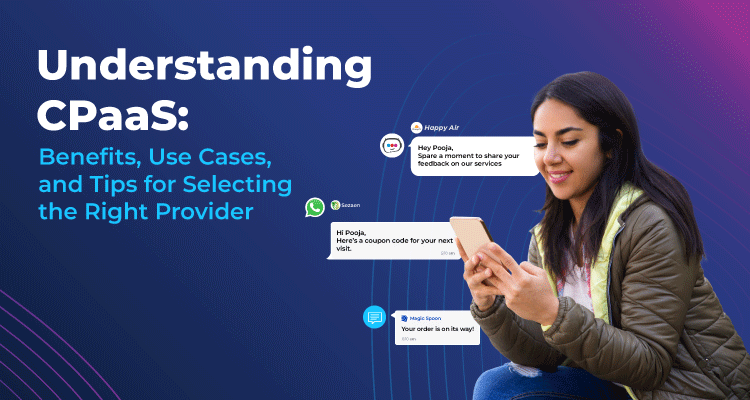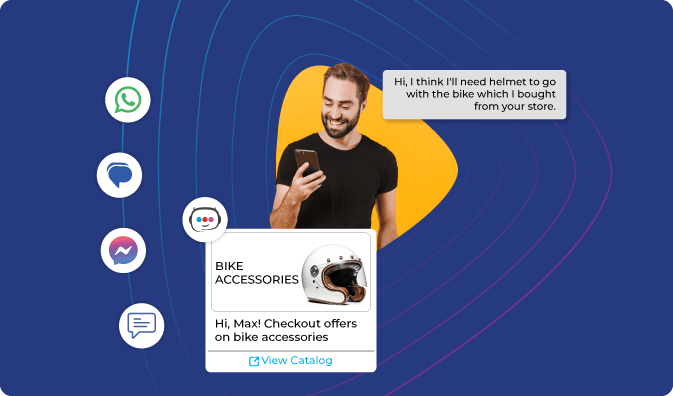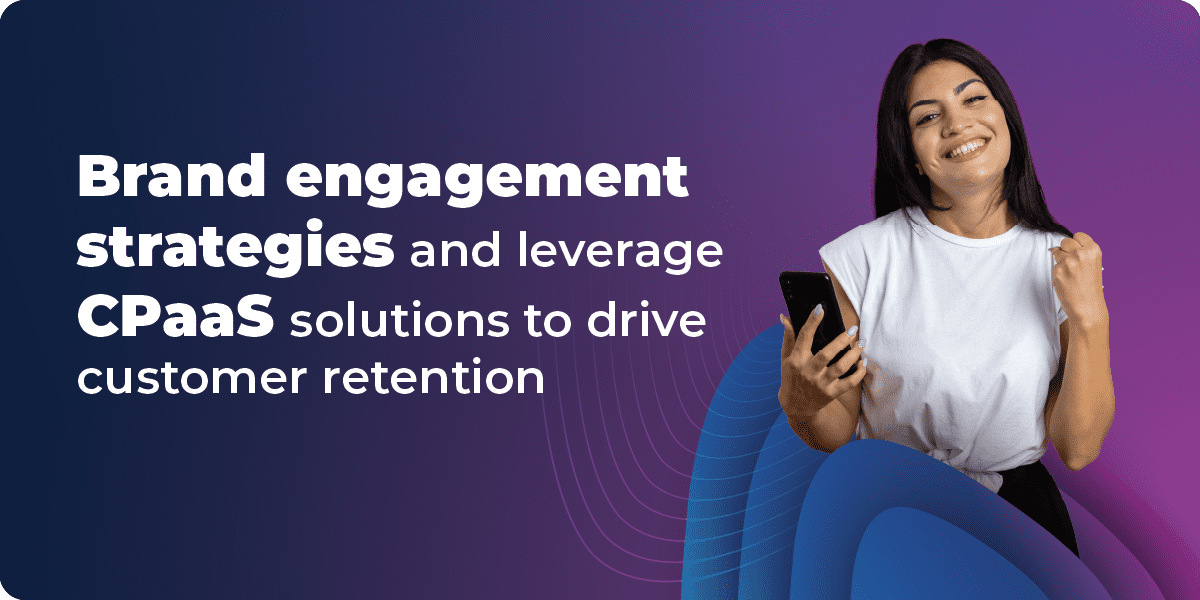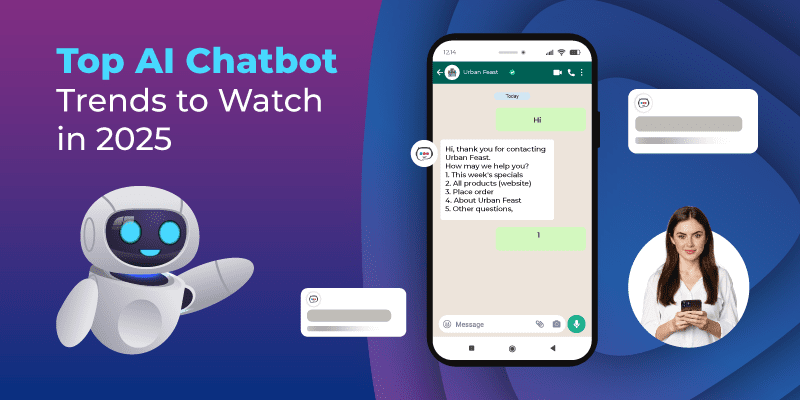Imagine adding voice, video and messaging capabilities to your app with just a few lines of code. That’s the magic of CPaaS (Communications Platform as a Service). By using APIs (Application Programming Interfaces), developers can seamlessly integrate real-time communication features into their applications. This powerful combination has completely transformed & automated how we incorporate communication services, making it easier, faster, and more efficient.
Research from IDC found that companies using CPaaS APIs can reduce development time by up to 50%. This is due to the ease of integration and the robust features provided by CPaaS platforms, which allow companies to focus on innovation rather than infrastructure.
Summary:
What is CPaaS?
CPaaS (Communications Platform as a Service) is a cloud-based solution that enables businesses to embed real-time communication features—such as voice calls, in-app messaging, WhatsApp messages, interactive voice response, email, and SMS—into existing workflows and applications. This facilitates quicker response times and fosters agile innovation. This helps businesses to focus on delivering exceptional user experiences rather than getting bogged down with the complexities of telecommunication networks.
The Role of APIs in CPaaS?
APIs are the bridges that connect applications to the CPaaS infrastructure. They establish protocols and rules for data exchange, enabling secure and efficient communication between applications. By leveraging APIs, Companies can integrate communication features with multiple programming languages and platforms, ensuring a high degree of control and customisation.
How APIs Enhance CPaaS
-
Flexibility and Customization
APIs allow companies to tailor communication features to their specific needs. This customisation can enhance the user experience by integrating communication directly into existing workflows and interfaces, providing a seamless experience for the end-user.
-
Scalability
With CPaaS, businesses can scale their communication capabilities as they grow. APIs allow for easy service expansion, ensuring that communication infrastructure can handle increased demand without requiring significant changes to the existing system. This scalability is vital for businesses navigating rapid expansion or fluctuations in demand throughout different seasons.
-
Cost-Effectiveness
By using CPaaS APIs, businesses can reduce the expenses of developing and maintaining their communication infrastructure. Some CPaaS providers, like Route Mobile, offer a pay-as-you-go model, allowing companies to pay only for their services. This affordability is especially beneficial for startups and small businesses operating within limited budgets.
-
Efficiency
APIs are incredibly efficient in CPaaS because they streamline the integration of complex communication features without the need to build them from scratch. By providing predefined protocols and tools, APIs enable seamless communication between software applications, allowing companies to quickly and securely implement messaging, voice, and video functionalities. This reduces development time, cuts costs, and enhances flexibility, enabling businesses to innovate faster and offer more robust, scalable communication solutions.
Route Mobile’s Diverse API Offerings
Route Mobile, a prominent CPaaS provider, offers a comprehensive suite of APIs that cater to various communication needs. These APIs empower companies to integrate diverse communication features into their applications, enhancing user engagement and operational efficiency. Here’s an overview of some of the key APIs offered by Route Mobile:
-
Messaging API
Route Mobile’s Messaging API allows companies to integrate native messaging apps like SMS and RCS into their applications. This API supports:
Global Reach: Send messages to users worldwide, ensuring broad communication coverage.
Two-Way Messaging: Enable interactive communication by allowing users to respond to messages.
Bulk Messaging: Efficiently sends messages to a large group of people, ideal for marketing campaigns and notifications.
Delivery Analytics: Track message delivery status in real time, providing valuable insights into message performance.
-
OTT Messaging API
Route Mobile’s OTT, or over-the-top messaging solutions, like WhatsApp and Viber Business API, enable businesses to communicate with customers via these channels. Features include:
Rich Messaging: Send text, images, videos, documents, and interactive messages to engage customers effectively.
Automated Responses: Use chatbots to automate responses to common queries, improving response times and customer satisfaction.
Notifications: Send real-time notifications for order updates, appointment reminders, and more.
Two-Way Communication: Facilitate two-way conversations, allowing customers to reach out for support and inquiries.
-
Voice API
The Voice API from Route Mobile enables the integration of voice call capabilities into applications. Features include:
Programmable Voice: Customize call flows and automate interactions with programmable voice capabilities.
Call Masking: Protect user privacy by masking phone numbers during communication.
Interactive Voice Response (IVR): Create sophisticated IVR systems for automated customer interactions.
Call Recording: Record calls for compliance, quality assurance, and training.
-
Video API
Route Mobile’s Video API facilitates the integration of video calling and conferencing into applications. Key features include:
High-Quality Video Calls: Ensure clear and reliable video communication with high-quality streaming.
Group Video Conferencing: Support multi-party video conferences, ideal for remote team collaboration and virtual meetings.
Screen Sharing: Enhance collaboration by allowing participants to share their screens during video calls.
Customisable UI: Tailor the video call interface to match the application’s branding and user experience.
-
Email API
The Email API provided by Route Mobile allows companies to send and receive emails seamlessly. Features include:
Transactional Emails: Send automated emails for order confirmations, password resets, and other transactional communications.
Bulk Emailing: Efficiently send marketing and promotional emails to large lists of recipients.
Analytics: Gain insights into email performance with detailed analytics on delivery, open, and click-through rates.
Template Management: Create and manage email templates for consistent and professional communications.
Some of the use cases of APIs in CPaaS
1. Customer Support Integration
CPaaS APIs are ideal for customer support where companies can seamlessly embed these communication options. For instance, a user facing an issue can initiate a live chat, escalate to a voice call, or start a video conference with a support agent without leaving the application. This enhances the customer experience by providing multiple integrated communication channels.
2. Telehealth Services
Telehealth services have become crucial in the healthcare industry. CPaaS APIs enable companies to build applications where patients can schedule and conduct video consultations with healthcare providers. These APIs ensure secure, HIPAA-compliant communication channels, allowing for real-time video conferencing, secure messaging for sharing medical documents, and automated appointment reminders. This not only improves accessibility to healthcare but also enhances patient engagement and follow-up care.
3. E-commerce Communication
E-commerce platforms benefit significantly from CPaaS APIs by integrating communication features that connect buyers and sellers. For example, an online marketplace can use APIs to enable real-time messaging between customers and vendors, voice calls for product inquiries and video calls for live product demonstrations. This level of interaction can lead to higher customer satisfaction, reduced return rates, and increased sales.
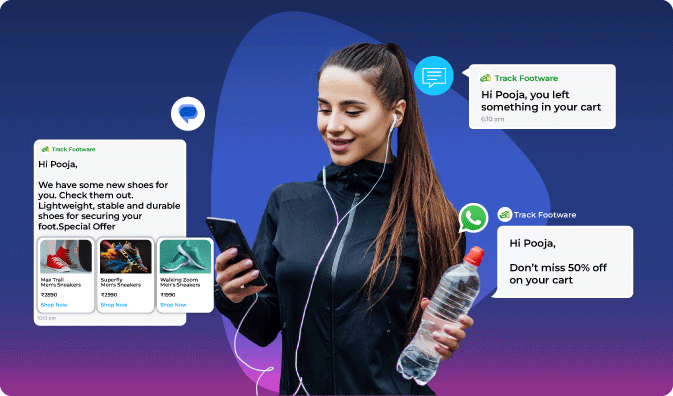
Future Trends and Innovations
The integration of APIs in CPaaS is just the beginning. As technology advances, we can expect even more innovative applications and enhancements, such as:
AI and Machine Learning Integration: APIs can incorporate AI and machine learning into communication platforms, providing capabilities like automated customer service through chatbots, sentiment analysis, and predictive maintenance.
Enhanced Security Measures: As cyber threats evolve, CPaaS providers will continue strengthening their APIs with advanced security features, ensuring that all communication remains secure and compliant with regulatory standards.
Conclusion-
APIs are the heart of CPaaS, providing the essential tools for companies to integrate advanced communication features into their applications effortlessly. Whether it’s enhancing customer support, revolutionizing telehealth, or boosting e-commerce interactions, the potential of CPaaS APIs is vast. As businesses strive to improve user experiences and streamline operations, the partnership between APIs and CPaaS will play a crucial role in shaping the future of communication technologies.
Ready to elevate your application’s communication capabilities? Explore Route Mobile’s comprehensive CPaaS platform that can transform your business.

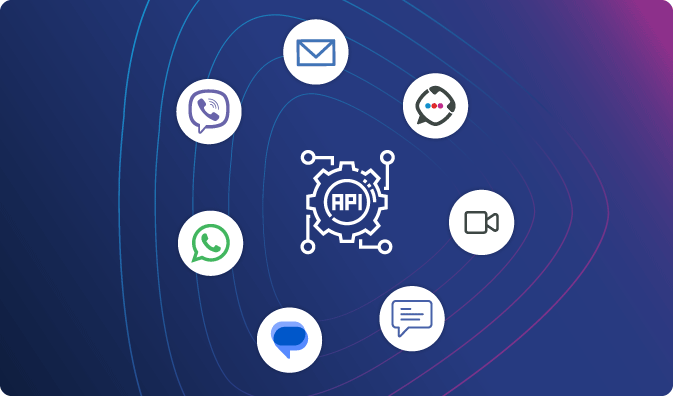
 OTT Messaging API
OTT Messaging API Voice API
Voice API Video API
Video API Email API
Email API
